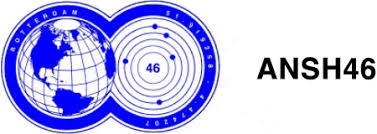Simple Agreement for Future Equity (SAFE): A Modern Financing Option for Startups
What is a SAFE agreement for startups?
A SAFE, or Simple Agreement for Future Equity, is a popular way to finance startups in America. It is an agreement between an investor and a company. With a SAFE, the investor provides money to the startup. In return, the investor will receive shares in the company later on. This usually occurs at the next funding round. A SAFE is simpler than other forms of financing. It can also be closed more quickly. Many startups and investors therefore opt for a SAFE agreement. However, there are also downsides.
Get your employee participation plan. Fixed price, arranged instantly.
- Transparent fixed price – no surprises afterwards
- Personalized plan, fully tailored to your company
- Ready-to-use Word or PDF template: buy once, use unlimited for all your employees
































































How does a SAFE agreement work?
A SAFE agreement works differently than a regular loan. With a SAFE, the investor provides money but does not receive anything back immediately. Instead, the investor waits for a 'trigger event'. This is often a new funding round. When that occurs, the SAFE funds are converted into shares. The price of these shares depends on the company's valuation at that time. Sometimes the investor receives a discount on the share price. Alternatively, a maximum price is agreed upon. This makes a SAFE attractive for investors.
Key components of a SAFE for a scaleup
A SAFE agreement has a few key components. First, there is often a 'valuation cap'. This is the maximum value of the company on which the investment is based. Secondly, there may be a 'discount rate'. This is a discount that the investor receives on the share price. Thirdly, there are 'trigger events'. These are events upon which the SAFE is converted into shares. For a scaleup, these components are important to negotiate. They determine how many shares the investor ultimately receives.
SAFE vs. convertible loan: what are the differences?
A SAFE resembles a convertible loan, but there are important differences. A SAFE is not a loan, but a promise for future shares. A convertible loan is indeed a real loan. With a SAFE, the company does not pay interest. This is not the case with a convertible loan. A SAFE sometimes has no end date. A convertible loan does. The terms of a SAFE are often simpler. This makes a SAFE agreement attractive for many startups. However, some investors prefer a convertible loan.
Advantages of a SAFE share for Dutch startups
A SAFE offers advantages for startups in the Netherlands. First of all, the process is quicker and simpler than other forms of financing. Fewer legal documents are needed compared to, for example, a share transaction. Secondly, a SAFE provides more flexibility for the startup. There is no fixed repayment date or interest burden. Thirdly, a SAFE can help to postpone the company's valuation. This is useful if it is still difficult to determine the value of the startup. Therefore, for many Dutch startups, a SAFE is an attractive option.
Conclusion: the future of SAFE in the Netherlands
The Simple Agreement for Future Equity (SAFE) is gaining popularity in the Netherlands. It offers a simple and flexible way of financing for startups and scaleups. A SAFE agreement can be closed more quickly than traditional financing forms such as a share transaction. It provides startups with more room to grow. For investors, it offers the chance to invest early in promising companies. Nonetheless, it is essential to weigh the pros and cons carefully. A SAFE may not be the best choice for every situation. Contact us to discuss the best option(s) for your situation.
Which participation plan suits your company?
Request a free intake. In 30 minutes we discuss your needs and determine which plan suits your company.
Veelgestelde vragen
A SAFE (Simple Agreement for Future Equity) is an agreement between an investor and a startup, where the investor provides money in exchange for future shares in the company.
A SAFE is not a loan but a promise for future shares. There is often no interest or repayment date, unlike a convertible loan.
A SAFE is usually converted into shares at the next funding round or another predefined 'trigger event'.
A valuation cap is the maximum value of the company on which the investment is based when converting the SAFE into shares.
A SAFE can be suitable for many startups, especially those looking to grow quickly and needing flexibility. However, it may not be the best choice for every situation. Contact us to discuss the best option(s) for your situation.
Advantages include faster and simpler funding, more flexibility, and no immediate interest burdens or repayment obligations.
SAFEs are gaining popularity in the Netherlands, especially among tech startups and scaleups. They are not yet as widespread as in some other countries.
A discount rate is a discount that the investor receives on the share price when the SAFE is converted into shares.
Although SAFEs are typically used for external investors, they can theoretically be adjusted for employee participation. However, this is less common and can be more complex in terms of taxes and regulations.
Shares for Employees - Everything You Need to Know
Discover the possibilities for employees to invest in their company through shares, options, SARs, profit sharing, and various bonus structures.
What are Stock Appreciation Rights in the Netherlands?
Discover what Stock Appreciation Rights (SARs) are, how they work, and the benefits for both employers and employees (and why they are so popular).